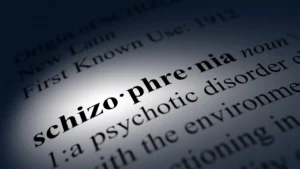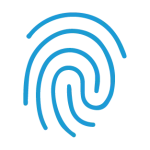Schizophrenia symptoms can be confusing, difficult, and hard to identify, especially in the early stages.
Learn about the most common signs of schizophrenia, how they might show up in daily life, and when it’s time to seek professional help for yourself or someone you care about. Early intervention, support, and treatment can make a big difference.

A Closer Look at Schizophrenia
Schizophrenia is a complex mental disorder that can cause a person to experience altered thoughts, feelings, and behaviors. It can cause difficulties understanding reality, communicating clearly, and connecting with others.
That can be scary, not just for you, but also for your family and friends. You might find it hard to keep up with everyday things, like going to work, staying in school, or spending time with others.
Different Types of Schizophrenia
In the past, medical experts used labels like paranoid schizophrenia or catatonic schizophrenia to describe different forms of the illness. But over time, they found that these labels didn’t help with treatment. So now, experts talk about schizophrenia as a spectrum of conditions. That means it can look different for different people.
Some conditions on the schizophrenia spectrum include:
- Schizotypal personality disorder – You may have unusual thoughts, behaviors, or ways of relating to others.
- Delusional disorder – You may have strong beliefs that aren’t based in reality, but your behavior is otherwise normal.
- Brief psychotic disorder – A short period of unusual thinking or behavior, often caused by stress.
- Schizophreniform disorder – Similar to schizophrenia, but symptoms last less than six months.
- Schizoaffective disorder – A mix of schizophrenia symptoms and mood problems like depression or mania.
- Other spectrum disorders – Sometimes doctors see symptoms that don’t fit one clear category, so they use this label for unusual cases.
Who Does Schizophrenia Affect?
Schizophrenia usually starts when you’re young.
- For men, it often begins between the ages of 16 and 25.
- For women, it usually begins between 25 and 35.
- Sometimes, it can start later. About 1 in 5 new cases happen in people over 45, especially men.
It’s rare in children, but it can happen. When it does, it’s often more serious and harder to treat.
Common Symptoms to Watch For
The symptoms aren’t the same for everyone, and they can come and go. Some days might be better than others. But there are certain signs you can look out for, whether it’s for yourself or someone you love.
1. Delusions
This means believing things that aren’t real.
You might feel like someone is watching you or trying to hurt you, even if there’s no real reason to think so. You may believe you’re super famous, have special powers, or that something terrible is going to happen. These thoughts feel very real, even if they aren’t true. Most people with schizophrenia experience delusions.
2. Hallucinations
This is when you see, hear, or feel things that others don’t.
The most common kind is hearing voices. These voices might talk to you or about you. You might also see things that aren’t there or feel things on your body that no one else can feel. To you, these things seem real, even if they’re not.
3. Disorganized Thinking and Speech
It can be hard to think clearly or talk in a way that others understand.
You might jump from one idea to another in a way that doesn’t make sense. If someone asks you a question, your answer might be off-topic or confusing. Sometimes, people with schizophrenia say words that don’t go together at all. This is called word salad.
4. Disorganized or Unusual Behavior
Your actions may seem strange or unpredictable.
You might act silly for no reason, have trouble sitting still, or not follow directions. It may be hard to focus on tasks or get things done. Sometimes, a person may barely move or speak at all. Other times, they may move in ways that don’t match the situation they’re in.
5. Negative Symptoms
This means you might lose interest in things or stop doing things you used to do.
You may stop showering, stop showing emotions, or avoid eye contact. You might talk in a flat voice and stop feeling joy. It can be hard to plan ahead or even get out of bed. You might pull away from friends or stop doing activities you once liked.
Some symptoms might be there all the time. Others might come and go. Some days may feel harder than others. If you notice these signs in yourself or someone else, consult a doctor or mental health professional.
When to Seek Medical Help
Sometimes, people with schizophrenia don’t realize they’re sick. This isn’t denial, it’s a symptom of the illness called anosognosia. It means the brain doesn’t recognize that anything is wrong, even when symptoms are clear to others.
This can be confusing for you and hard for your loved ones. Often, it’s your friends or family who first notice something isn’t right. They might be the ones to help you get the care you need.
How to Help Someone Who May Have Schizophrenia
If someone close to you is showing signs of schizophrenia, talk to them gently about your concerns. You can’t make them get help, but your support can make a big difference.
Here are a few ways you can help:
- Encourage them to talk to a doctor or mental health provider.
- Offer to go with them to the appointment.
- Help them find a professional or clinic.
Sometimes, the person may not believe they need help. That’s common. Be patient and keep offering support.
When It’s an Emergency
There are times when you need to act quickly. Call 911 (or your local emergency number) if the person:
- Is a danger to themselves or others.
- Can’t take care of basic needs like eating, bathing, or finding shelter.
- Talks about or attempts suicide.
In serious cases, they may need to stay in a hospital for emergency care. Laws about this vary by state, so you can contact your local mental health agency or police department to find out what’s allowed in your area.
What to Do About Suicidal Thoughts
People with schizophrenia are more likely to think about or attempt suicide. If someone says they want to die or tries to hurt themselves:
- Don’t leave them alone.
- Call or text 988 in the U.S. to reach the Suicide & Crisis Lifeline. It’s free, private, and open 24/7.
- You can also chat online at the Lifeline website.
- Spanish speakers can call 1-888-628-9454.
Getting help early can lead to a more accurate diagnosis, which can support better outcomes and an improved quality of life.
What to Expect from a Diagnosis
Once you’re diagnosed, your doctor may recommend antipsychotic medications. These can help reduce or even stop the scary or confusing thoughts you might be having, especially during strong episodes. Medications can also lower your chances of having another episode later on.
Therapy is also important. You may work with a counselor to:
- Learn how to deal with stress
- Build stronger relationships
- Improve your ability to work or go to school
- Learn skills for daily life
Some therapies help you change negative thinking patterns, while others focus on giving support and helping you feel more in control.
If You’re Also Struggling with Substance Use
Many people with schizophrenia also have problems with drugs or alcohol. If that’s something you’re going through, it’s important to treat both issues at the same time. Ignoring one can make the other harder to manage.
For instance, methamphetamine (meth) can cause meth psychosis, which looks a lot like schizophrenia. You might see or hear things that aren’t there, feel paranoid, or act in ways that don’t make sense. If you already have schizophrenia, meth can make your symptoms much worse.
Marijuana addiction is also common in people with schizophrenia. While some people think marijuana is harmless, it can increase confusion, paranoia, and hallucinations, especially if you already have a mental illness.
Your care team can check for a dual diagnosis, which means you have both a mental health condition and a substance use problem. This helps them create the best plan to treat both at the same time, so you can start feeling more stable and in control.
Life After Diagnosis
Once symptoms are under control, the journey doesn’t stop there. Ongoing therapy and support help people manage their illness for the long term. This can include:
- Learning to spot early warning signs of a relapse
- Practicing social skills
- Working on goals like school or a job
Many people with schizophrenia benefit from rehabilitation programs. These programs teach life skills, offer job training, and help people return to work. Some programs, like supported employment, help people with mental illness find real jobs and succeed in them.
Why Family Support Matters
If you’re a family member, your help can make a big difference. People with schizophrenia often do better when they have loved ones who understand and support them. But you also need support, too; it’s a lot to handle alone.
Groups like:
- Schizophrenia and Psychosis Action Alliance
- Mental Health America (MHA)
- National Alliance on Mental Illness (NAMI)
…offer help, information, and support for both patients and families.
Schizophrenia is indeed a lifelong condition. But it doesn’t mean giving up on your goals. Many people go on to live full, happy lives. With the right care, a strong support system, and your determination, things can get better.
If you or someone you love is struggling with schizophrenia symptoms or substance use, OceanRock Health and South Coast Counseling are here to help with compassionate, expert care. Contact us today to start your path toward healing, support, and a better quality of life.










